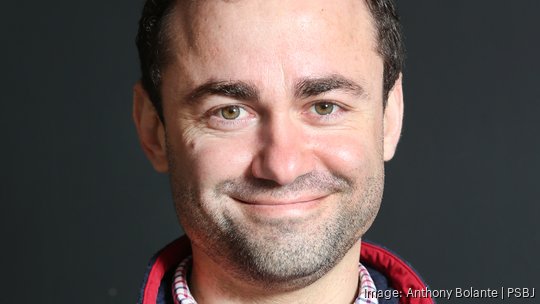
Seattle-based remittance company Remitly Global Inc. (Nasdaq: RELY) is taking a measured approach to employee growth.
“We’re hiring for all the roles you would expect us to be hiring for — like engineering, product management, marketing, design, compliance, legal,” said co-founder and CEO Matt Oppenheimer. “We are still hiring, but we’re also hiring in a pretty disciplined way.”
With Remitly, customers can send money internationally through a bank deposit, cash pickup or mobile wallet. Its services are available in more than 170 countries.
Founded in 2011, Remitly has had a busy couple of years. The company went public in 2021, and in February of this year, Remitly announced an expansion to the Middle East by allowing customers to send money from the United Arab Emirates (UAE). In May, however, Remitly shuttered its immigrant-focused digital banking service Passbook, a move Oppenheimer attributed to the product falling outside its core customer base.
The Business Journal spoke with Oppenheimer about Remitly’s expansion plans and marketing strategies.
About Remitly
- HQ: Seattle
- Founded: 2011
- CEO: Matt Oppenheimer
- Employees: More than 2,700 (as of 2022)
- Customers: 5.4 million active customers during the third quarter
- Revenue: $241.6 million in the third quarter, up 43% year over year
How is the expansion going into the UAE? It’s going well. It’s a very large market. It’s similar to how we launched some of the European countries five-plus years ago. We have what we call our corridor expansion playbook. Given how large our existing business is in other geographies, UAE isn’t material yet, but there’s an enormous amount of customers we can serve there. If you think about the type of customer that moves to the UAE, it’s a wide range as always, but there are a lot of customers who can benefit from our service.
How do you pick new markets? We look at the size of the opportunity, the competitive landscape and if we can provide a more compelling and better-to-use product. We look at the regulatory dynamics locally. There’s lots of opportunities out there for us still. We can more easily and quickly turn on new geographies. We’ve just gotten a lot faster at it.
What types of problems does Remitly want to solve? It’s a very focused set of areas we’re looking at because we’ve heard from our customers they have pain points in those problem areas. If I share the problem areas, the solutions will probably be too obvious.
Fair enough, but what can you share on that front? If you think about moving to a new country as an immigrant or an ex-pat, remittances are critical and foundational in terms of financial services. But there are a lot of other financial services that don’t meet their needs, and we think we have a unique ability to meet those needs. So I can say it’s within financial services because that’s clear to our vision, but I probably shouldn’t go into more depth.
Remitly has offices around the globe. How does the Seattle office fit into future employee growth? A lot of the hires you can see on our site are in Seattle. It’s important to recognize that we’re hiring in Seattle. We’re still in downtown Seattle at Third and Seneca. We’re excited about being an increasingly large employer in the community.
Beyond new products and markets, how does Remitly gain new customers? Even though we’re relatively still small as a percentage of the overall market, the market is very fragmented, so we’re increasingly a larger and known player in the countries we serve. Marketing is critical for building trust with new customers. I’ve talked a lot about reliability, but that is critical.
How so? If you think about our customer base, we’re asking them for their name, address, date of birth, tax ID or SSN, if they have one, to go through all the know-your-customer requirements. Then we’re asking them to give us their money to send thousands of miles home, often to be picked up in cash. Trust is paramount. Providing a reliable, trusted product is very hard. Once we’ve provided that service, customers come back again and again. That’s how we’re growing.
How does this trust challenge impact your business? It’s why a lot of remittances are still sent via offline cash locations. It doesn’t make rational sense on the surface. If you go a click deeper, I get it. It’s somebody in their community that they know and that they trust. If anything happens, they feel like there’s that physicality, and they can go back to that location. So our marketing focus is on building trust with new customers.
What does your marketing look like? We have a lot of digital channels we use. We’ve found some what we call integrated marketing campaigns effective at improving the customer acquisition costs of some of our digital channels. An example would be the Miami airport. A lot of customers travel to and from Latin America from the Miami airport. We did a fully integrated campaign in Miami and were able to see the improvement of some of our other channels.
This interview has been edited for length and clarity.








